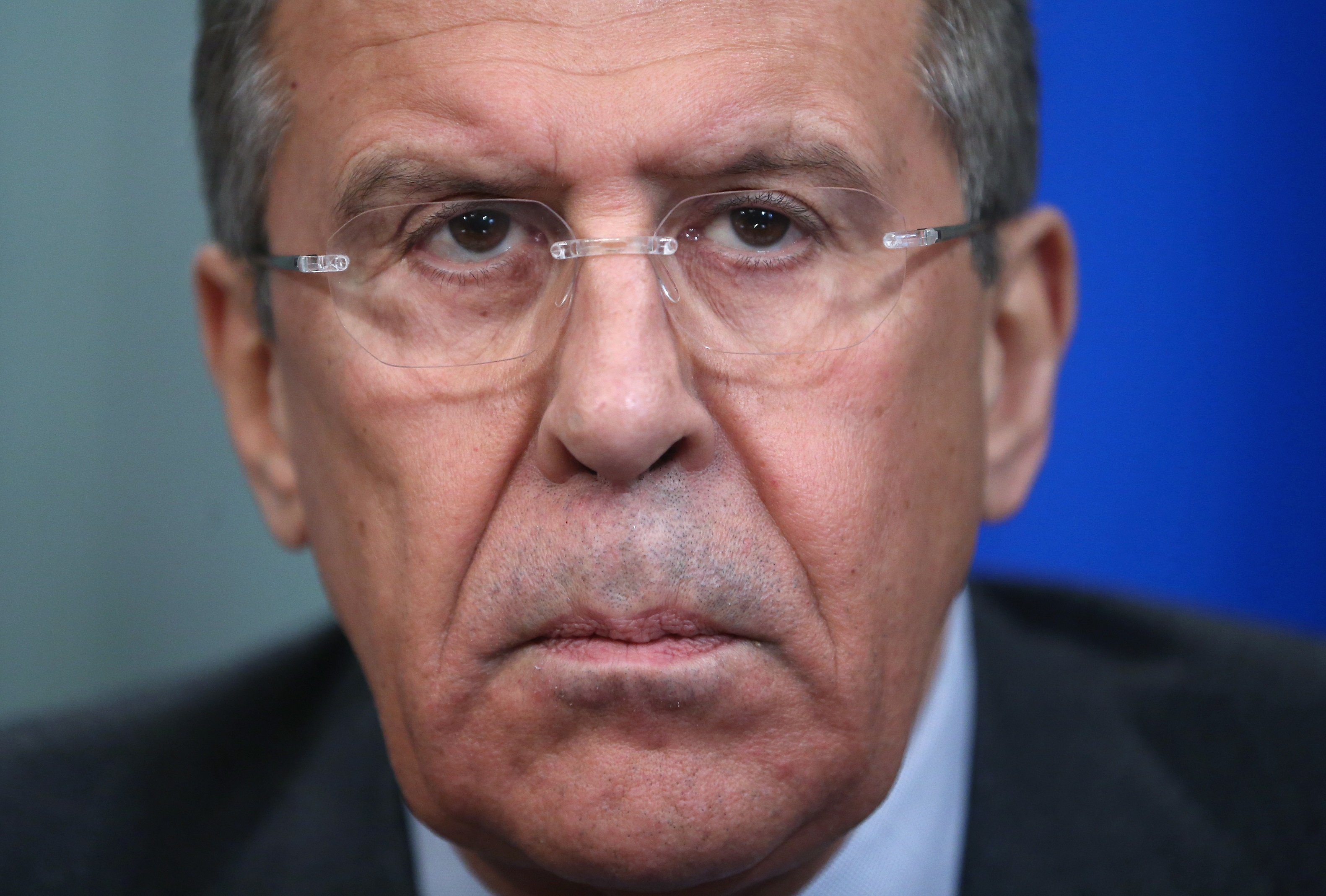ID :
355483
Wed, 01/28/2015 - 09:03
Auther :
Shortlink :
https://oananews.org//node/355483
The shortlink copeid
Lavrov to meet with Syrian negotiators in Moscow

MOSCOW, January 28. /TASS/. Russia’s Foreign Minister Sergei Lavrov will have a meeting with representatives of the Syrian opposition and of the government, who are in Moscow for consultations on settlement of the conflict in Syria.
The programme or purposes of the upcoming meeting have not been published. Clearly, however, the participants will discuss that representatives of different parties in the Syrian conflict should undertake necessary efforts in the interest of "stopping the fratricidal bloodshed and sufferings of the Syrian people, consolidation of forces to fight terrorism and extremism and for soonest political settlement on the basis of confirming Syria as a unified, sovereign, secular and democratic country," the Russian foreign ministry said.
The negotiations between Syria’s opposition and government representatives began on Monday from consultations of the opposing parties. Over the past two days, they may have tried to offer a common position, on the basis of which later on they could be working on ways to overcome the crisis. On Wednesday, the opposition will present results of its work to the delegation of the Syrian authorities. The negotiations are most likely to continue on Thursday.
The delegation of official Damascus is headed by Syria’s Permanent Representative at the United Nations Bashar al-Jafari. The opposition’s over 30 delegates from various parties and movements have come to Moscow. The list of participants has not been published, and the meeting is behind closed doors. The only opposing movement - the National Coalition for Syrian Revolutionary and Opposition Forces (NCR), based in Istanbul, is not represented at the negotiations.
The discussions are of purely inter-Syrian character and do not involve representatives of the international community or the media, thus information about the talks is only very limited. However, TASS learned from Safwan Akkash of the National Coordination Committee (NCC), that at the talks in Moscow the Syrian opposition "managed to reach agreement on certain positions, which should have positive effect on the inter-Syrian negotiation process." He said, the atmosphere during the discussions "has been very positive."
Representative of independent opposition circles Khaled al-Mahamid told TASS: "We were united in the necessity to stop violence, free political prisoners and those kidnapped, including women and children," al-Mahamid said, adding that the participants of the talks will voice those proposals at the upcoming negotiations with a delegation from Damascus.
"We believe it necessary to block channels of armament supply to terrorists, open access for humanitarian assistance to blocked areas," he said. "Now we are all united in that the Geneva Communiqué, all points, are the basis for Syrian settlement. We are grateful to Moscow for the provided site; this is the first meeting in such format since the first day of the crisis. But we are concerned about the fate of Syrians, as the situation is in a deadlock."
On Monday, Russian presidential special representative on the Middle East and African countries Mikhail Bogdanov said some 28 Syrian opposition representatives came to Moscow. Bogdanov also said the delegates are expected to meet with Russian Foreign Minister Sergey Lavrov on Wednesday.
The meetings aim to find a solution to the Syrian conflict that has been ongoing since 2011. According to UN statistics, fighting between Syrian government troops and militants has killed more than 100,000 people and displaced millions since its start in 2011.
An international peace conference on Syria, dubbed Geneva-2, organised by Russia and the United States and designed to negotiate a solution to the Syrian crisis, kicked off on January 22, 2014 in Montreux, Switzerland. Its first two rounds in January and February 2014 brought no particular progress. The parties to the Syrian conflict agreed to continue their discussions.
The Geneva Communique was adopted on June 30, 2012 at a conference of an "action group" on Syria in Geneva. That conference is now commonly referred to as "Geneva-1."
Read more





